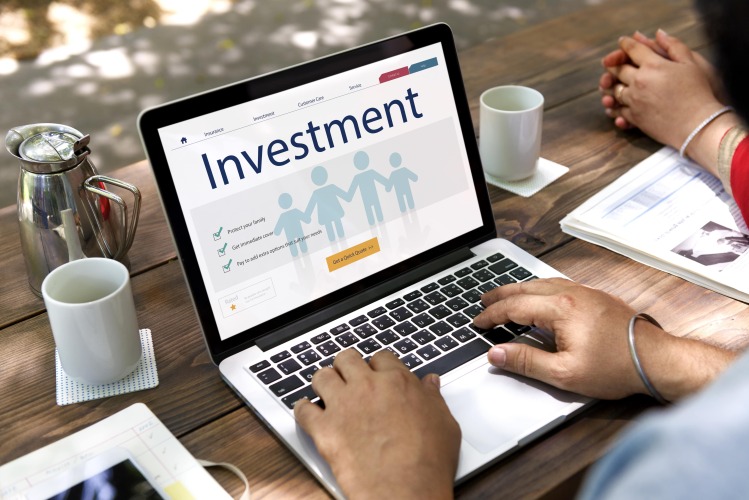

Serbia, a landlocked country located in Southeastern Europe, is steadily becoming a hotspot for foreign investment and business opportunities. With its unique geographical location, a blend of historical and modern influences, and favorable economic policies, Serbia is quickly making a name for itself as an investment destination.
But is it a good place to invest and do business? Let’s take a closer look at some of the factors that investors and entrepreneurs should consider.
Economic Overview
Serbia has shown consistent economic growth over the past decade. It has transitioned from a post-socialist economy to one that is increasingly integrated with global markets. In recent years, Serbia has enjoyed a steady GDP growth rate, with inflation remaining relatively stable, contributing to a favorable environment for business.

The country’s economic growth is largely driven by its expanding manufacturing sector, particularly in industries like automotive, electronics, machinery, and textiles. Serbia’s location within the Central European Free Trade Agreement (CEFTA) region allows businesses to access an expansive market of over 30 million people in the Balkans and beyond, providing a strategic advantage for those looking to expand their footprint in the region.
Business-Friendly Policies
One of Serbia’s key selling points for investors is its business-friendly environment. The Serbian government has introduced a variety of reforms aimed at attracting foreign direct investment (FDI). Among these, corporate tax rates are relatively low, with a flat tax of just 15%, making it one of the most competitive in Europe. Additionally, there are tax incentives for investments in specific sectors like information technology (IT), manufacturing, and renewable energy.

The government has also simplified procedures for starting a business. It is now easier to register a company, with a streamlined process that takes only a few days. Legal and regulatory frameworks have been improved, and there is a growing emphasis on reducing bureaucracy and corruption. For businesses looking to expand in the region, Serbia’s deep commitment to improving infrastructure, including roadways, rail, and telecommunications, provides another major incentive.
Labor Force and Education
Serbia has a highly educated and skilled workforce, particularly in areas like engineering, information technology, and sciences. The country places a strong emphasis on education, with many universities and technical schools providing high-level training to young professionals. Labor costs are also relatively low compared to Western European countries, making Serbia an attractive option for companies looking to set up manufacturing plants or research and development (R&D) facilities.

However, like many countries in the region, Serbia does face a challenge with a skilled labor shortage in certain areas. Companies looking to hire specialized talent may find it difficult to find qualified employees, particularly in the tech sector, where demand for expertise is high.
Strategic Location and Trade Agreements
Serbia’s geographical location offers significant logistical advantages. Situated at the crossroads of Central and Southeast Europe, it is within driving distance of major European markets. Serbia has been working to integrate itself more closely with the European Union (EU), with which it has a Stabilization and Association Agreement (SAA). While Serbia is not yet an EU member, the country is taking steps toward membership, which could open even more doors for businesses in the future.

Serbia is also a member of several international trade agreements. The country has signed free trade agreements with the EU, Russia, and Turkey, making it easier for businesses to access these important markets. Serbia’s membership in CEFTA further facilitates trade with neighboring Balkan countries, while its access to the EU market allows companies to take advantage of the world’s largest trading bloc.
Challenges to Consider
Despite the many advantages, there are challenges when doing business in Serbia. The country’s economy is still evolving, and while much progress has been made, some aspects of its infrastructure, regulatory environment, and business culture still need improvement.
1. Bureaucracy and Corruption: While the government has made strides in reducing bureaucracy, some administrative inefficiencies persist. Corruption is still a concern in certain sectors, though steps have been taken to tackle this issue.
2. Political Instability: Serbia’s political landscape can be unpredictable, with occasional tensions over regional issues, particularly concerning Kosovo. Though the political situation has stabilized in recent years, businesses must be aware of potential risks associated with changes in policy or leadership.
3. Limited Access to Venture Capital: Access to venture capital and funding for startups is somewhat limited in Serbia compared to Western Europe or North America. This could pose a challenge for entrepreneurs looking to launch new businesses, especially in the tech space.
Sectors to Watch
There are several sectors in Serbia that are particularly ripe for investment and business development:
1. Information Technology and Startups: Serbia has become a growing hub for tech startups, thanks to its well-educated workforce, increasing government support for innovation, and competitive costs. The country’s IT industry is one of the fastest-growing sectors, and there are numerous opportunities for investment in software development, gaming, and cybersecurity.
2. Manufacturing and Automotive Industry: Serbia has established itself as an attractive destination for manufacturing, especially in the automotive sector. Major global companies like Fiat, Mercedes, and Johnson Controls have set up manufacturing facilities in the country. With its proximity to key markets and competitive labor costs, the sector remains one of the most promising for foreign investors.
3. Renewable Energy: Serbia is increasingly looking to expand its renewable energy capacity, and the government has introduced incentives for investment in green energy projects. This offers significant potential for companies in the renewable energy sector, particularly solar and wind energy.
4. Agriculture and Food Processing: Serbia has a rich agricultural sector and is one of Europe’s top exporters of fruits, vegetables, and grains. The country’s food processing industry also presents opportunities for investment, particularly in organic and sustainable farming practices.
Conclusion
Serbia is a country with significant potential for investors and entrepreneurs. Its favorable economic policies, strategic location, low tax rates, and growing sectors make it an attractive destination for doing business in Europe. While challenges like bureaucracy, corruption, and political instability remain, the government’s commitment to reform and integration with the European Union provides optimism for future growth.
For businesses willing to navigate these challenges, Serbia offers an opportunity to enter a burgeoning market with substantial room for expansion. Whether in tech, manufacturing, or agriculture, there are ample opportunities to tap into the growing Serbian economy and establish a strong foothold in the Balkans.
Related Articles


5 Little Things in Serbia That Travelers Never Forget
February 20, 2026
Interesting Facts About Sretenje You May Not Know
February 16, 2026






